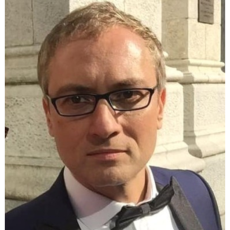Could you please provide us with a brief history of Vaxart and the vision you have for the company?
I studied computer engineering and worked in corporate finance before falling in love with the biopharma industry in the early 2000s. I was approached about joining the board of Vaxart in early 2020, and when the pandemic hit, it became clear to me that vaccines will become a critical pillar of biopharma. Prior to COVID, they were the industry's backwater, underinvested and dominated by three or four large vaccine companies. As a small company, it was extremely difficult to compete with major players such as Sanofi, Merck, GSK, and Pfizer. But the world soon came to a halt, and we were forced to reintroduce innovation in the vaccine space in order to find the quickest and most efficient solution to the virus. This abrupt shift in scenario demonstrated how vaccines, like cybersecurity or the army, should be viewed as a strategic capability for a country.
Why do you think pills are a better method of administration than injections?

Offering vaccines in pill form rather than injectable form has the potential to revolutionize the entire industry because we will be able to vaccinate a lot more people, much faster.
We have common data that shows that a large number of Americans are afraid of getting an injection, and if there had been a pill option, 20 million more people would have received the vaccine. Simply put, you can vaccinate yourself with a glass of water because no specialized personnel are required to administer it.
This approach may also relieve strain on the healthcare system. Because it takes approximately nine months to inject 70% of a country's population, the virus has the potential to infect more people and mutate by the time the vaccination campaign is completed. Fortunately, with an oral vaccine that does not need to be refrigerated, we could immunize the entire country in two weeks. This approach is especially useful in developing countries where medical personnel are scarce and infrastructure is aging.
How come this oral option is only now becoming known and possibly adopted?
Unfortunately, the vaccine industry has a poor track record of innovation. There have been some initiatives to develop mucosal vaccines or nasal sprays against the flu, but the results have been inconclusive. Furthermore, due to the nature of the gastrointestinal system, putting a vaccine into a pill is an extremely complicated process. Our platform is based on a protein that would enter the acidic environment of the gut and be digested like food. As a result, we needed to figure out how to get the human body to react to the pill. Furthermore, understanding how mucosal immunity is triggered and measured is very different from evaluating a serum and the antibodies produced.
What is the current state of your pipeline, and how far along are you in the development process?
Aside from the COVID-19 vaccine, we have another advanced program aimed at norovirus, which affects 15% of children under the age of five every year and causes many hospitalizations and deaths among the elderly. The norovirus market in the United States is estimated to be worth $10 billion per year, with a global value of more than $30 billion. For this particular infectious disease, we are in the midst of a human challenge study, the results of which will be available later this year.
Simultaneously, we are developing vaccines for various flu strains, for which current injectables have less than 50% efficacy. RSV is another common respiratory infection addressed by our program, as is HPV, for which we are developing the first therapeutic vaccine for early-stage cervical cancer. We signed a co-founding agreement with the Gates Foundation in December 2022, with the goal of demonstrating that by giving the vaccine pill to breastfeeding mothers, we can also immunize the babies.
How would you characterize investor interest in the vaccines sector right now?
Investor themes come and go, and interest in anything associated with COVID-19 is currently very low. Since most Western governments declared the end of the pandemic last year, interest in this sector has begun to wane. However, being a vaccine developer in general is still a more privileged position than it was before the pandemic because the entire world is now aware of the economic and healthcare difficulties we have faced.
What are the main goals you hope to achieve in the next two to three years?
Our main goal is to continue making a significant impact in the vaccines sector by demonstrating the value of our platform to the global public health sector. We want to end the tyranny of the needle, which leads to an archaic, painful, and time-consuming method of vaccination. Hopefully, we will be able to make people forget that vaccines were previously only available as injections.





